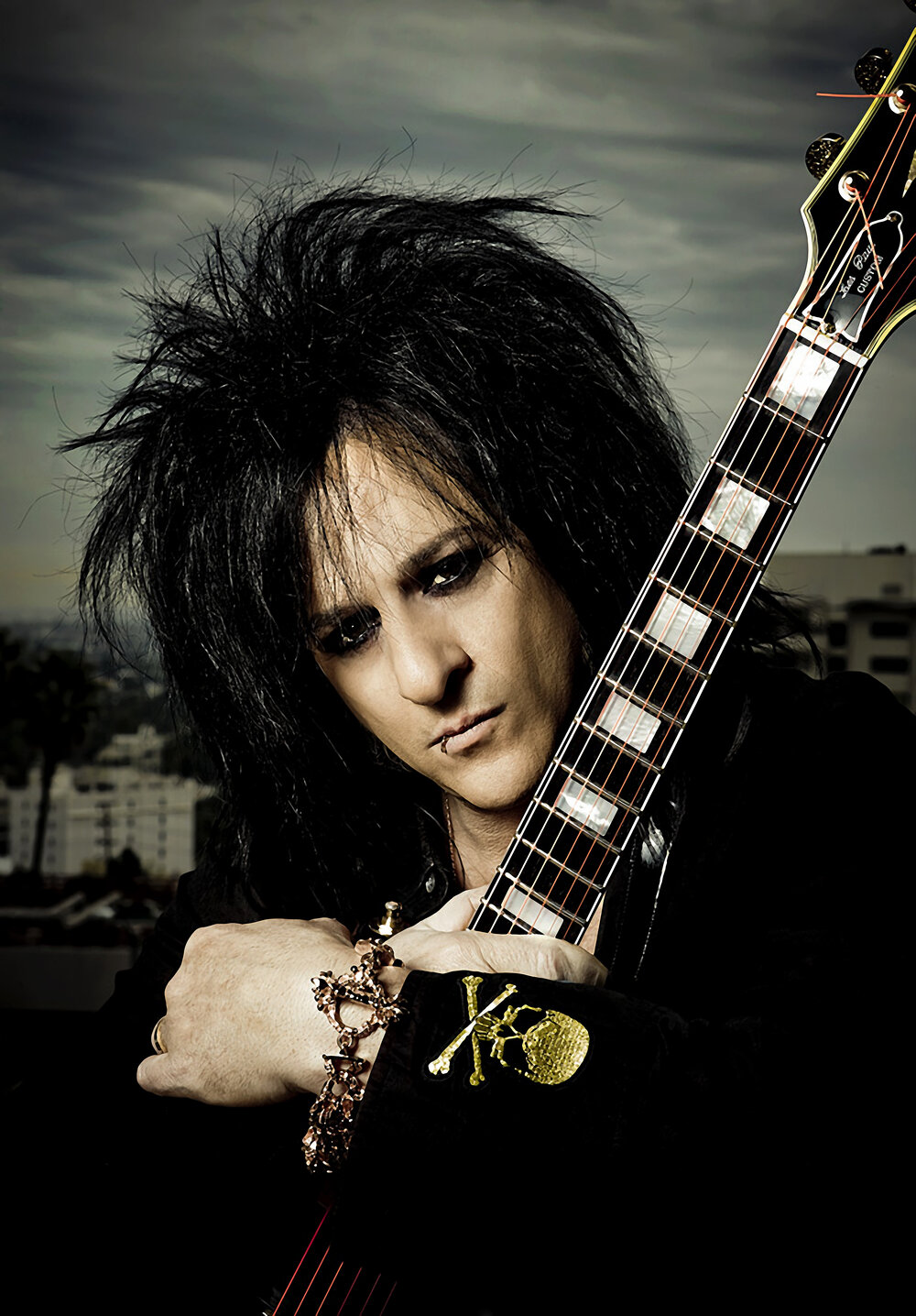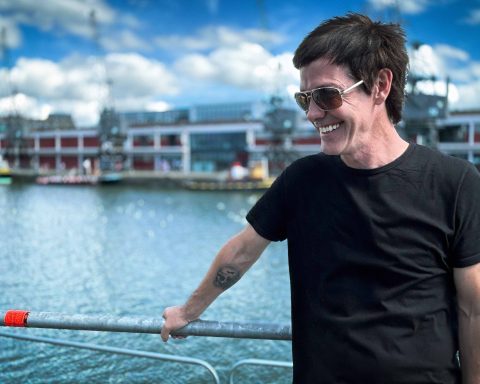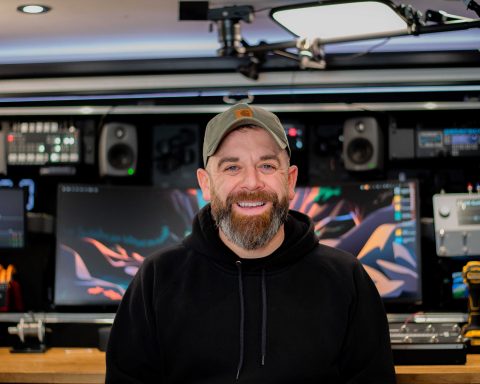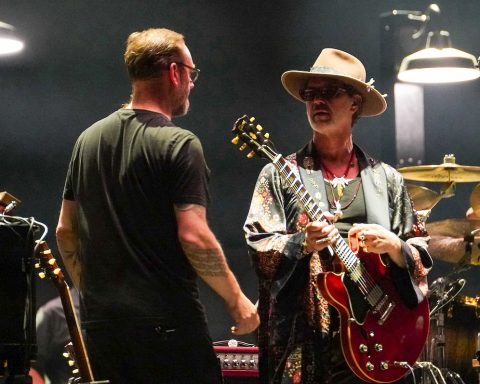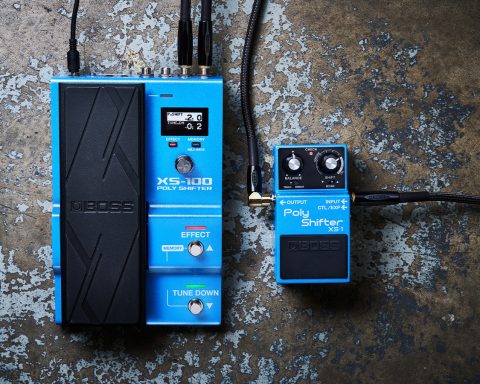With his shock of black hair and fleet-fingered attack, Steve Stevens emerged in the ’80s as one of the decade’s most distinctive guitar stylists. Drawing on punk, new wave, and classic rock, Stevens was a perfect foil for the charismatic Billy Idol, with whom he co-wrote almost all of the classic Rebel Yell. And Stevens’ talents extend far across the music industry, even taking flight in film as the soloist on the theme for Top Gun. A groundbreaking guitarist with an arsenal of sonic tricks, Stevens is the latest recipient of the BOSS Lifetime Achievement Award.
Perfect Partners
Stevens grew up in New York where he began playing his chosen instrument: the guitar. Perhaps a harbinger of future success, the young player attended LaGuardia High School for Performing Arts, famous as the setting of Fame. “The school is on 46th Street, and the music stores are on 48th,” Stevens told BOSS Tone Radio in 2010. “I became friends with all the guys in the music shops, and that was my education.” That early training evolved into a stratospheric career.
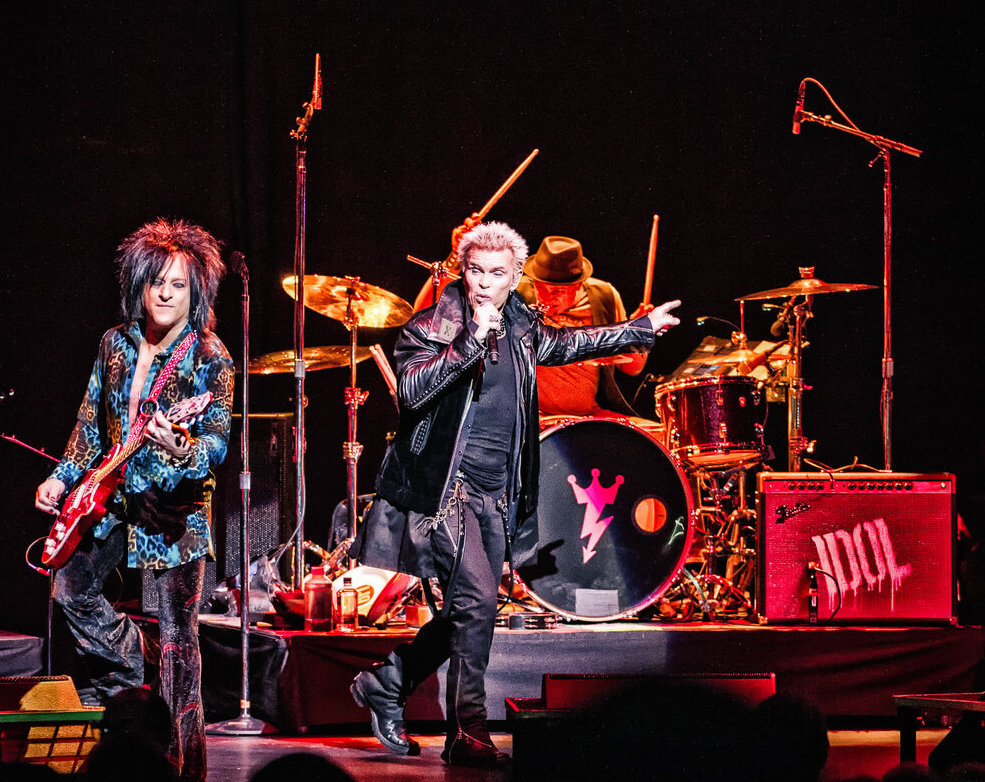
Developing a unique blend of rock swagger with sci-fi guitar pyrotechnics, Stevens soon became known for his longstanding partnership with the iconic Billy Idol. The duo had a once-in-a-lifetime chemistry—the superstar’s bleach-blond spikes contrasted perfectly with Stevens’ raven locks. As co-writers, they penned chart-toppers like “Eyes Without a Face” and “Rebel Yell” and were a near-constant presence on MTV, a platform fast gaining traction.
In addition to his role with Idol, Stevens became an in-demand player, even contributing the legendary solo to “Dirty Diana” by Michael Jackson. Stevens appears in the late singer’s video silhouetted in smoke, delivering his trademark windmills. In addition to such mainstream moments, Stevens experimented with multiple genres on solo releases like Atomic Playboys, Flamenco a Go-Go, and Memory Crash.
Sky-High Triumph
Yet one song in particular took him to new heights. While working on Idol’s Whiplash Smile, composer Harold Faltermeyer came in to add some keyboards. While there, he mentioned he was scoring a movie called Top Gun. “He showed me some of the aerial footage, and I knew who Tom Cruise was,” Stevens recalled. “I probably did all of the work in about three hours.”
The result of that short session was “Top Gun Anthem,” which took home the coveted Grammy Award for Best Pop Instrumental Performance in 1987. He remained humble about the honor. “Lo and behold, we won a Grammy for it,” Stevens said. “It just goes to show that you can’t predict things like that.”
“Lo and behold, we won a Grammy for 'Top Gun Anthem.' It just goes to show that you can’t predict things like that.”
Guitar Synth Trailblazer
Stevens’ pioneering guitar synth work is another cornerstone of his unique approach, combining equal parts blazing passages, melodic lines, and atmospheric arrangements. “Keith Emerson, Rick Wakeman—those were my heroes as well as guitar players,” Stevens said in a 2011 Roland GR-55 Guitar Synthesizer video interview. “If I can get those sounds and have access to synthesis through my guitar, I’m gonna use it.”
“If I can get those sounds and have access to synthesis through my guitar, I’m gonna use it.”
Throughout his career, Stevens has utilized BOSS gear in the studio and live, including on classics like “Top Gun Anthem.” As a BOSS Lifetime Achievement Award recipient, he joins prior inductees Jeff “Skunk” Baxter, Andy Summers, Steve Vai, Danny Kortchmar, Yngwie Malmsteen, and Johnny Marr.
“As far back as I can remember, BOSS was there as some of my first guitar effects pedals—from saving paper route money for an OD-1 OverDrive to having a complete BOSS pedalboard for the recording of the Billy Idol Rebel Yell album,” Stevens said of the award.
“Where would songs like ‘Eyes Without a Face’ and ‘Flesh for Fantasy’ be without the CS-1 Compression Sustainer and CE-2 Chorus on my guitar tracks? BOSS continues to be forward-thinking and innovative. It’s an absolute honor to be recognized by BOSS for my contributions in music.”
“Where would songs like ‘Eyes Without a Face’ and ‘Flesh for Fantasy’ be without the CS-1 Compression Sustainer and CE-2 Chorus Pedal on my guitar tracks?"
Likewise, Stevens continues to evolve as an artist—right up through recent Billy Idol releases like The Roadside and The Cage. Reflecting on the breadth of his career in 2010, the guitarist offered some advice to aspiring players: “Do it for the right reasons, which is the love of music,” Stevens said. “That’ll carry you through a 30-year career as it has for me. It’s the love of music that’ll keep it happening.”
